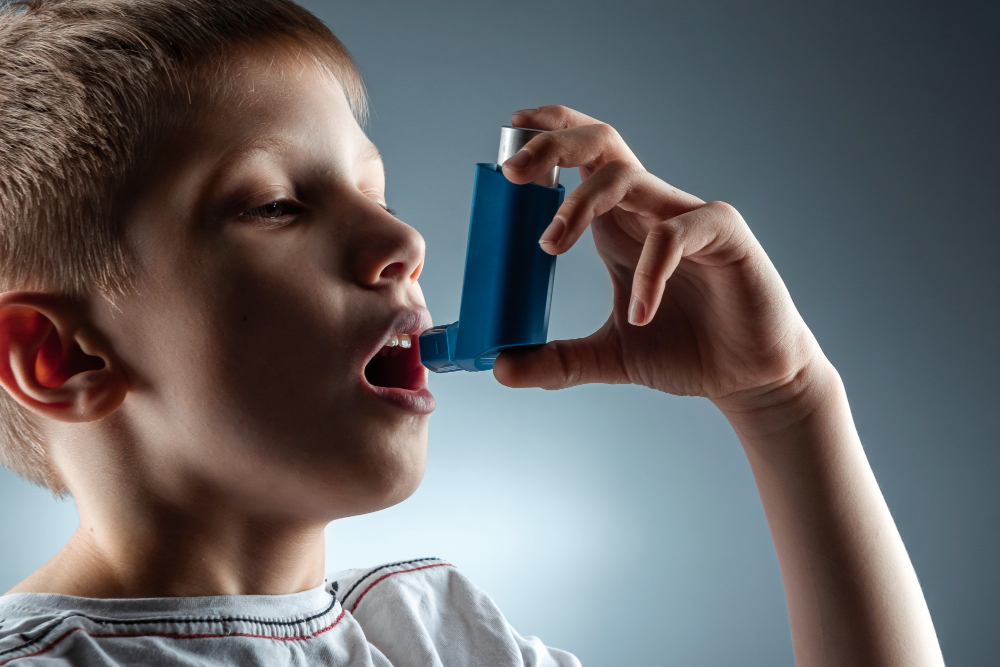What is Asthma in Children?
Asthma in children is a long-term lung condition. It causes the airways to swell and narrow. Because of this, children may find it hard to breathe. Asthma can start at any age, but it often begins in childhood. Many kids with asthma need daily care. However, with the right treatment, most children can live active lives. According to the CDC, asthma is one of the most common chronic diseases in children.
Common Symptoms of Childhood Asthma
Children with asthma may show different signs. Sometimes, symptoms are mild. Other times, they can be severe. Early detection helps with better childhood asthma management. Look for these common asthma symptoms in kids:
Sometimes, symptoms get worse with colds or allergies. If you notice these signs, talk to your child’s doctor.
Causes and Risk Factors
There is no single cause of asthma in children. Instead, many things can increase the risk. For example, family history plays a big role. If a parent has asthma, a child is more likely to have it too. Other risk factors include:
Because triggers can vary, it is important to watch for patterns in your child’s symptoms.
How Asthma is Diagnosed in Children
Doctors use several steps to diagnose asthma in children. First, they ask about symptoms and family history. Next, they may do a physical exam. Sometimes, doctors use breathing tests. These tests measure how well your child’s lungs work. For young children, doctors may watch how they respond to asthma medicine. In some cases, allergy tests help find triggers. Early diagnosis helps with better pediatric asthma treatment.
Treatment Options for Children with Asthma
Asthma treatment in children aims to control symptoms and prevent attacks. Most children need a mix of daily and quick-relief medicines. Treatment plans may include:
Doctors will adjust the plan as your child grows. Regular check-ups are important for childhood asthma management. Always follow your doctor’s advice about medicine use.
Lifestyle Tips and Home Care
Good home care helps children with asthma stay healthy. Here are some tips for parents and caregivers:
Because every child is different, work with your doctor to create a plan that fits your child’s needs.
Preventing Asthma Attacks in Children
Preventing asthma attacks in children is possible with the right steps. For example, you can:
Because triggers can change, review your child’s plan with the doctor often.
When to See a Doctor
Sometimes, asthma symptoms can get worse quickly. Seek medical help if your child:
Even if symptoms seem mild, regular check-ups help keep asthma in control. Early action can prevent serious problems.
For more information, visit trusted sources like the CDC or WHO. Consult a pediatrician for personalized advice on managing asthma in children.
